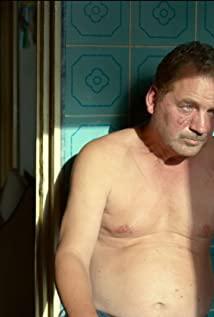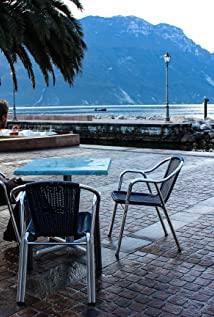1. Realism This is a thorough tracking filming film. This tracking filming greatly deepens the realism of the film, and even has the feeling of a documentary, and the use of handheld photography in the whole film is more prominent. this feature. At the same time, the narrative rhythm is not procrastinated, and one long shot after another makes the audience firmly immersed in the tension. In the film, a very real Romania is constructed, a real polyhedron. Whether it is depicting the living conditions of college students (grocery store in the dormitory, cigarette brands) or describing the incident of private abortion, etc., the director never emphasized or explained anything from beginning to end, and did not use the soundtrack to express emotions. It is through daily dialogues, scenes, actions, and sounds that make visible and invisible, so that you can not feel the estrangement from this film, because it never hides your secrets, and never deliberately, it naturally shows that one day, your Emotions follow. The audience is like a surveillance camera with a one-day shelf life attached to the heroine. Following the heroine to experience extraordinary daily life, you participate in the heroine's day-to-day life, even in a completely unfamiliar country and a completely unfamiliar time. . 2. Mood and Atmosphere From the perspective of the play, the film first builds a big dilemma, which contains countless small dilemmas encountered in solving the big dilemma, which makes people's emotions always tense, and how to connect each one. The black area between the predicaments keeps the audience highly tense. The director skillfully used the scene on the road, taking a bus, walking, taking a car... The protagonist always maintains a state of movement, A state of resolution, thereby immersing the viewer in every minute of the film. At the same time, the director is good at adding some details to enhance the tension in the scene. For example, in the first scene, in the dormitory, the hostess and her friends are hurriedly packing things, and the background sound accompanied by the clock ticking continuously increases the sense of urgency of time. Another example is the several scenes of the heroine in the dark night, which very well render the tension, anxiety and unknown. The heroine stumbles and runs in the dark, the camera keeps shaking, and sometimes the picture is not clear at all. And it was this arrangement that made the tension and oppression feel at the highest level. 3. Character Position and Space The director's arrangement of character positions is very subtle. For example, when the heroine is eating at her boyfriend's house, the director arranges the heroine and her boyfriend in the deepest part of the picture, and can't see other people's faces, only the hands, which are almost as big as the heroine's head. This arrangement keeps the heroine in a squeezed and bound state, which makes people breathless. Another example is the scene where the doctor asks the female protagonist's roommate. The female protagonist is sandwiched between the doctor and her roommate, and she forcibly joins the conversation in her position. The structure of space is also great. For example, the bathroom is constantly appearing. The bathroom is the only place in the whole movie that can relax the audience's nerves. The characters in the film are often when the door is closed, the faucet is turned on, and they sit quietly and take a breath. Because the bathroom is a relatively private space, entering the bathroom is like halftime in a game with reality. 4. Theme I think the theme of "April" is a revolt by women in the face of the struggles and difficulties in society. Pregnancies without safety measures, squeezed states at parties, rhetoric from abortion doctors, women are vulnerable in the director's world. This fight was passive at the beginning. At the end, the two of them sat at the table and said not to mention the loss of the child, but they couldn't find anything to say. They did not get rid of the shadow of the miscarriage and the loss of the child. It's even possible that they thought the revolt was wrong, and the dead bones made them realize that they took a life. And this is the most helpless part, and it is also the problem. Is the behavior of losing the child correct? What is the outcome of this resistance to be considered a victory? Perhaps this resistance was doomed to fail at the beginning, because this struggle was passive at the beginning. The film ends with the two sitting in silence. The silence is better than the sound, and it ends after leaving the problem, which is thought-provoking. Theme I think the theme of "April" is a revolt by women in the face of the struggles and predicaments in society. Pregnancies without safety measures, squeezed states at parties, rhetoric from abortion doctors, women are vulnerable in the director's world. This fight was passive at the beginning. At the end, the two of them sat at the table and said not to mention the loss of the child, but they couldn't find anything to say. They did not get rid of the shadow of the miscarriage and the loss of the child. It's even possible that they thought the revolt was wrong, and the dead bones made them realize that they took a life. And this is the most helpless part, and it is also the problem. Is the behavior of losing the child correct? What is the outcome of this resistance to be considered a victory? Perhaps this resistance was doomed to fail at the beginning, because this struggle was passive at the beginning. The film ends with the two sitting in silence. The silence is better than the sound, and it ends after leaving the problem, which is thought-provoking. Theme I think the theme of "April" is a revolt by women in the face of the struggles and predicaments in society. Pregnancies without safety measures, squeezed states at parties, rhetoric from abortion doctors, women are vulnerable in the director's world. This fight was passive at the beginning. At the end, the two of them sat at the table and said not to mention the loss of the child, but they couldn't find anything to say. They did not get rid of the shadow of the miscarriage and the loss of the child. It's even possible that they thought the revolt was wrong, and the dead bones made them realize that they took a life. And this is the most helpless part, and it is also the problem. Is the behavior of losing the child correct? What is the outcome of this resistance to be considered a victory? Perhaps this resistance was doomed to fail at the beginning, because this struggle was passive at the beginning. The film ends with the two sitting in silence. The silence is better than the sound, and it ends after leaving the problem, which is thought-provoking.
View more about 4 Months, 3 Weeks and 2 Days reviews









